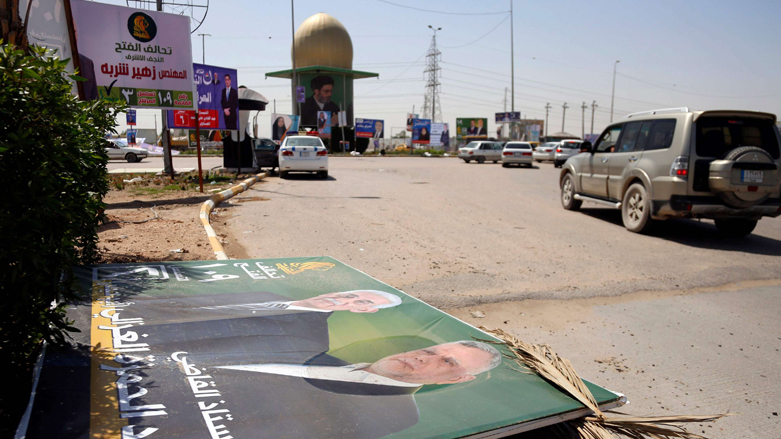Iraqi PM orders Iraqi security to 'take control' of tense situation in Kirkuk, Sulaimani

ERBIL (Kurdistan 24) – Iraqi Prime Minister Haider al-Abadi on Sunday ordered security forces to take control of the situation in Kirkuk Province after tensions arose between parties in the area over election results.
Parties in Kirkuk accused one another of electoral fraud in Saturday’s long-awaited Iraqi election, prompting supporters of the Hashd al-Shaabi militia-led al-Fatih coalition to gather around the office of the Iraqi Independent High Electoral Commission (IHEC), calling for a manual recount of the ballots.
Tensions also erupted in Sulaimani Province Saturday night as the Gorran (Change) movement revealed that armed men belonging to the Patriotic Union of Kurdistan (PUK) attacked its headquarters with heavy weaponry.
Abadi’s press office, in the statement, stressed that the Commander-in-chief of the armed forces had “ordered the security forces in Kirkuk” and other provinces of the Kurdistan Region to “take control the situation” while remaining neutral in affairs related to the election.
On Saturday, people across Iraq and the Kurdistan Region took part in national legislative elections, the first since the defeat of the Islamic State (IS). Polls opened at 7:00 a.m. and closed at 6:00 p.m.
Turnout stands at 44.5 percent, according to the IHEC. It is the lowest voter turnout rate in Iraq in the past 13 years. In the 2014 elections, roughly 60 percent headed to the polls.
Unlike previous elections, a new electronic device was used in Saturday’s parliamentary elections to verify voter cards, fingerprints, and to count ballots—a system meant to streamline the electoral process and prevent fraud from taking place.
Political parties across the country, however, have asserted there were incidents of voter fraud at multiple polling stations.
Abadi called on the IHEC to promptly inspect ballot boxes and electronic devices used to count the votes, and not further delay the announcement of the election results, all while ensuring and maintaining the trust of the public.
Results are expected to be known within 48 hours after the election, the IHEC previously asserted.
Editing by Nadia Riva
